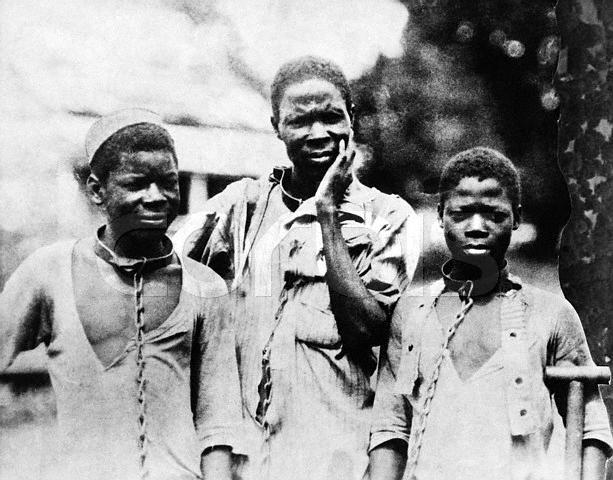When I agreed to begin writing for InTheFray, I promised that my personal biases, thoughts, and experiences would not dominate the things I wrote here. As an avid blog reader, as well as a journalism student, I believe that blogs beginning with the words “from my experience” are often uninteresting to the readership and convey little more than a narrative. However, today’s topic was literally handed to me from my own experience, and that is what I have to go with. I hesitated on posting this for more than a week, just to make sure I was giving the incident its social and political justice, and that I wasn’t just using this as a place to rant. But I think it makes sense when you look at it from the outside.
I live in a small-city-turned-college-town by its home to, historically, one of the strongest athletic programs in the Big 12. I live on the edge of campus, right near downtown, and am able to watch the city and the university mix together in a unique fashion. Although I write crime for the university’s student newspaper, I have never feared walking alone at night from my job or doing most activities independently.
But today everything changed. I had my car battery replaced and decided to stop at a gas station down the road from my dormitory. I had walked there before over the fall; it wasn’t that far away. They had good prices. It seemed a perfect fit.
But I didn’t fit in. As I walked into the store, a man with dreadlocks in a newer blue car stopped me, asking repeatedly what my name was and then for me to get into his car. I stared at him blankly, refusing any other response except to walk into the store to buy glass cleaner. I just wanted to get my windows clean.
I exited the store, Armorall and Mountain Dew in hand, and started the lengthy task of washing the windows on my Jeep.
I didn’t realize how out of my element I apparently was until two young men, close to my age, started shouting at me. Then, I started getting scared. But I tried to just keep washing my windows and the seat covers in my car. I didn’t want to seem scared. After all, I paid taxes here, too – it’s my city, too.
After the men retreated behind the side of the building, my heart stopped racing a little bit, and I began to put everything back into my car so that I could leave and head back to the dorm before going to classes. But I didn’t get much time to relax, or slow the adrenaline that was pulsing through my veins like fire.
All I could think at that moment was how much I wanted to go home. No, not to the dorm on the campus I’ve lived since August, but home, to my home. Where I drive everywhere safe and secure in my two-door Jeep. Home, where my mother is a vigilante and watches out the back door when I drive in from work late at night. Home, where I’ve never felt insecure and never questioned my own safety while trying to fill a car with gas.
But I just calmly drove back to my dorm, taking the long route as to avoid being followed, and dialed my mother on my cell phone as I did so. It took all of my willpower not to burst into angry tears.
“You go to college in a small town with a small-town mentality,” she said. “You guys need to keep traveling in packs.”
I knew she was right, but I didn’t want to be confined to leaving the dorm or the vicinity of my classes to only when two or three of my friends could tag along. These were my streets – the streets where I had wandered excitedly after making my college choice less than a year ago. These are the streets I was supposed to feel comfortable and at home on. Now, all I want is to get away from them.
What right do men walking at the corner of Providence and Walnut have to rob me of my security, of the knowledge that any streets I choose are my own? They don’t have the license to take away my safety – but I’ve given it to them by my own fear.
Tonight, I am driving around a campus I usually walk with abandon because I do not want to be caught off guard. I will drive to another part of the city to fill my car with gas. It is likely my boyfriend will fill a role he was never meant to – a watch guard of sorts, because I am too wary to wander on my own at night.
Follow-up postings discussing the issues of women’s safety and offensive attitudes in small towns will follow shortly. Sometimes the personal and the political merge in a unique matter. Sometimes, we can’t help but speak from what we know, rather than what we have to say.
- Follow us on Twitter: @inthefray
- Comment on stories or like us on Facebook
- Subscribe to our free email newsletter
- Send us your writing, photography, or artwork
- Republish our Creative Commons-licensed content

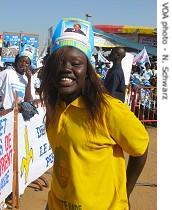
 The president's final campaign rally was held Friday in Dakar, the Senegalese capitol. Cheered by hundreds of youthful supporters, Wade told the crowd that he would bring jobs to the country’s youth, those who are desperate for a chance to leave the country. Many young men and women attempt to illegally emigrate to Europe in hopes of finding employment.
The president's final campaign rally was held Friday in Dakar, the Senegalese capitol. Cheered by hundreds of youthful supporters, Wade told the crowd that he would bring jobs to the country’s youth, those who are desperate for a chance to leave the country. Many young men and women attempt to illegally emigrate to Europe in hopes of finding employment. 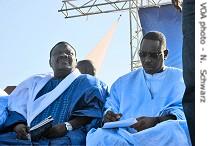 Cheikh Bethio Thioune, a Mouride leader who, at Friday's rally, sat on center stage with Mr. Wade. Thioune denied any involvement in the violence at the Seck rally, while at the same time acknowledging that he favors Wade’s candidacy.
Cheikh Bethio Thioune, a Mouride leader who, at Friday's rally, sat on center stage with Mr. Wade. Thioune denied any involvement in the violence at the Seck rally, while at the same time acknowledging that he favors Wade’s candidacy. 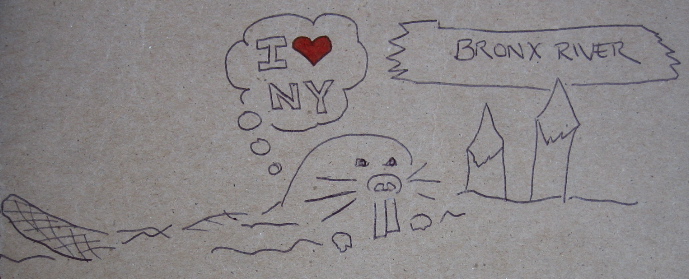


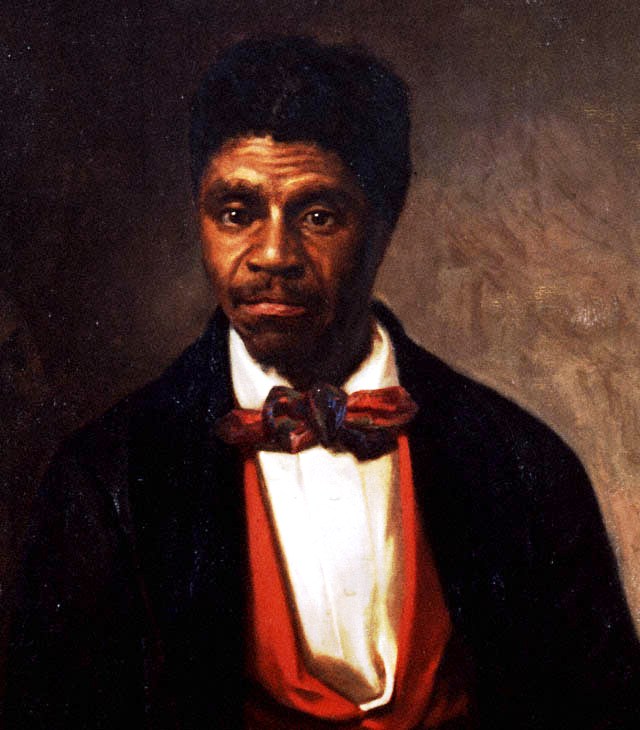
 The Scotts, after all, had been the property of white America their entire lives. Moved from one state to another by their owner, Dr. John Emerson – a military physician – the Scotts lived for many years in Illinois and Wisconsin, two states where slavery was not institutionalized.
The Scotts, after all, had been the property of white America their entire lives. Moved from one state to another by their owner, Dr. John Emerson – a military physician – the Scotts lived for many years in Illinois and Wisconsin, two states where slavery was not institutionalized. 